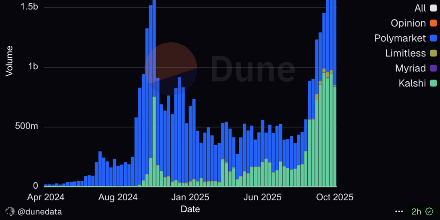Solo Bitcoin Miner Beats Rare Odds to Win $350
- Solo Bitcoin Miner Wins Block and Million-Dollar Reward
- Estimated probability was 1 in 36.000 per day
- Miner hash rate equivalent to an Antminer S21
A solo Bitcoin miner has achieved a statistically rare feat by solving a block and securing the full reward, estimated at $347.980. Block 913.593 was mined using CKpool software, which allows solo mining, with a return equivalent to 3,129 BTC.
The proceeds were split between a 3,125 BTC subsidy, valued at approximately $347.509, and 0,004 BTC in transaction fees, totaling approximately $471 more. This feat drew attention in the industry, as the likelihood of a small miner achieving such a feat is extremely low.
“Congratulations to miner bc1q~jr38 for solving the 307th solo block on solo.ckpool.org, with only 200th!” wrote CKpool developer Con Kolivas in a post on X. He also noted that “a miner of this size has only a 1 in ~36.000 chance of solving a block per day, or once every ~100 years!”
Congratulations to miner bc1q~jr38 for solving the 307th solo block at https://t.co/UWgBvLkDqc , with only 200TH! https://t.co/t9icRGzf0K
A miner of this size only has a 1 in ~36,000 chance of solving a block each day, or once every ~100 years!— Dr -ck (@ckpooldev) September 7, 2025
The computing power used is comparable to a single air-cooled Bitmain Antminer S21 machine, released in 2024. According to Mempool estimates, the solo miner's hash rate represented about 0,00002% of the total Bitcoin network hash rate, which reached 1,04 ZH/s on September 8. For comparison, companies like MARA and IREN operate much higher hash rates, at 59,4 EH/s and 50 EH/s, respectively.
Bitcoin's hash rate reflects the total computational capacity employed on the network. Recently, the metric surpassed the historic mark of one zetahash per second—equivalent to one trillion trillion calculations—even as miners face increased difficulty, reduced revenues, and tight margins.
Despite the reduced odds, smaller miners still resort to solo pools hoping to win the full block reward. While shared mining is more common and offers more consistent proportional gains, some prefer to take the risk to try for full rewards, comparable to a lottery.
This wasn't the first case of small-scale miner luck. In 2022, another solo miner with a hash rate of just 126 TH/s managed to validate a block, earning around $260.000. Similar situations continue to occur, even with the high concentration of mining power in the hands of large, publicly traded companies.
Disclaimer: The content of this article solely reflects the author's opinion and does not represent the platform in any capacity. This article is not intended to serve as a reference for making investment decisions.
You may also like
OracleX Global Public Beta: Restructuring Prediction Market Incentive Mechanisms with "Proof of Behavior Contribution"
OracleX is a decentralized prediction platform based on the POC protocol. It addresses pain points in the prediction market through a dual-token model and a contribution reward mechanism, aiming to build a collective intelligence decision-making ecosystem. Summary generated by Mars AI The content of this summary is produced by the Mars AI model, and its accuracy and completeness are still being iteratively improved.

Bitcoin is not "digital gold"—it is the global base currency of the AI era
The article refutes the argument that bitcoin will be replaced, highlighting bitcoin's unique value as a protocol layer, including its network effects, immutability, and potential as a global settlement layer. It also explores new opportunities for bitcoin in the AI era. Summary generated by Mars AI. This summary was produced by the Mars AI model, and the accuracy and completeness of its content are still being iteratively improved.

Bitcoin 2022 bear market correlation hits 98% as ETFs add $220M

Fed rate-cut bets surge: Can Bitcoin finally break $91K to go higher?

